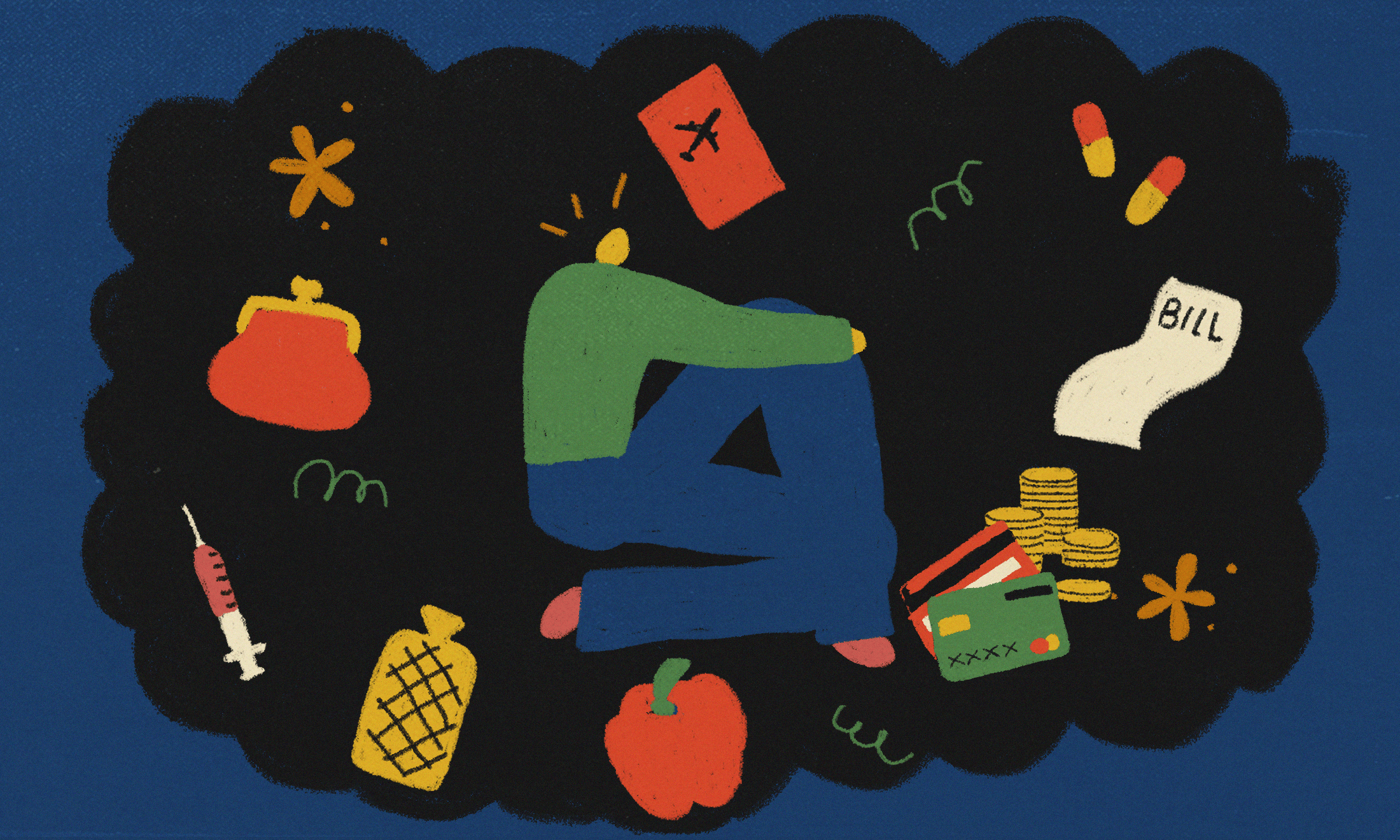
Flickr/Canva
Why are we paying the price for a cost of living crisis created by the Tories?
From aid packages that fall far short, to the origins of the crisis, political choice is going to push millions more into extreme poverty.
Kimi Chaddah
04 Feb 2022
Welcome to Britain, where profits take precedence over living standards. On 3 February, Chancellor Rishi Sunak announced mitigation measures to confront a snowballing energy crisis threatening the livelihood of millions of people in Britain. As energy regulator Ofgem announced that energy bills would soar by £693 per year from April, ‘Dishi Rishi’ announced a measly £350 aid package for households, in what he viewed as an astoundingly generous move to take the “sting” out of rising energy cuts.
In France, the government has limited energy bill hikes to 4%, forcing the state energy company to weather a £7bn loss in value in order to protect its citizens from rising costs. In Norway, the Parliament voted to subsidise domestic energy bills. In Britain, we instead are presented with… government Wonga.
If we ever needed proof of how out of touch the Tories are, introducing “loans” to pay energy bills provided it. The chancellor proudly announced that all households would receive £200 off their energy bills in October – with the caveat that they would then have to pay the discount back by £40 a year over five years from 2023. In a world of innovation and possibility, the Tories give us… payday loans. And, given energy bills are decided by the market based upon prices of the previous year, the Tories will be demanding repayments when families are still struggling with the massive increases.
We’re not just in the midst of an energy crisis of course; by now, the realisation is trickling through that a general cost-of-living crisis is well underway. For millions, life is about to get very, very hard, extremely fast. Councils are upping their tax bills by around 4.4% per year as they struggle to fund community services. Consumers can expect to pay £180 more on average this year for their groceries than in 2021.
Meanwhile, the Bank of England revealed that UK interest rates would double from 0.25% to 0.5%, while National Insurance – which is automatically taken off your paypacket – is to be hiked by 1.25% to fund the health and social care crisis – a crisis of the Tories’ own making. Then there’s what has been dubbed a ‘tax rise by stealth’ on student loans. All of this occurs among a backdrop of stagnating wages. And these lethal measures have consequences: millions won’t be able to afford to live, full stop.
The same day Sunak was presenting his sorry excuse of a lifeline to the British public, oil company Shell boasted of a “momentous” 14-fold rise in its profits to £12bn. In 2021, it was revealed they had failed to be taxed at all on North Sea oil and gas profits for three years. Fellow fossil fuel behemoth Exxon Mobil, had its most profitable year in seven years in 2021, having received £360m worth of subsidies from the UK government. And on Tuesday, ministers voted to give bankers a tax cut worth £1bn a year.
There is no element of inevitability about the cost-of-living crisis. Nearly £9bn of PPE and £4.3bn in Covid-19 fraud have been written off. Despite this, the Tories maintain, of course, that there is no “magic money tree”. The cost-of-living crisis is a matter of political choice. Letting gas prices rise – and refusing to raise taxes on energy companies making billions for their shareholders – ultimately fuels energy companies’ profits, and places millions in fuel poverty. The message – that everything is going to cost more, but to compensate, we’re all going to earn less – is the inevitable culmination of a political agenda that openly disregards the vulnerable.
“By now, the realisation is trickling through that a general cost-of-living crisis is well underway. For millions, life is about to get very, very hard, extremely fast”
It’s no surprise that the rise in cost-of-living will hit minorities and vulnerable communities hardest. A study last year found that people from Black and ethnic minority heritage are among several groups facing disproportionately high living costs, due to the likelihood of being hit by the ‘poverty premium’ and people of colour being over-represented in lower paid, less secure work. People from Pakistani and Bangladeshi backgrounds are over three times as likely as white people to live in the most income-deprived 10% of neighbourhoods, while Black women are least likely to be among the UK’s top earners.
Feigning concern for the public and set on replacing No. 11 for No. 10, Sunak announced measures that render living unaffordable for millions. Modelling from the New Economic Foundation indicates the poorest 10% of families will still be £450 a year worse off after the supposed council tax rebate in April. Indeed, Sunak encapsulated the problem himself, pointing to how providing £350 will help “the vast majority of households”.
But when it’s not even enough for the vast majority (with the average family facing additional costs of £1,096 per year), deprived communities will struggle on an unfathomable level. Pushing households into abject poverty as they choose between heating or eating, the most deprived communities have been excluded from the equation entirely, with Sunak slashing the universal credit uplift months before.
The Tories once heralded themselves as a ‘strong and stable’ party. They still openly embrace the myth that they are the only responsible trustees of the economy – writing in The Sun yesterday, Rishi Sunak said the Tories have “always been the party of sound money”. But the maths isn’t adding up. Under the Tories, one in three children now live in child poverty, 700,000 more since 2012. Even in 2019, pre-pandemic, one fifth of the population lived in extreme poverty, warranting a UN special investigation.
At the tail-end of Covid-19, things look set to get much, much worse and the ‘solutions’ proposed by the supposed economic wunderkids will do nothing but exacerbate the problems in the long term, with millions set to suffer from Victorian levels of deprivation. But at least big businesses will see their profits protected. As one writer put it: “the problem with the remorseless and ceaseless accumulation of wealth is that eventually you run out of other people to extract capital from”.
“The message – that everything is going to cost more, but to compensate, we’re all going to earn less – is the inevitable culmination of a political agenda that openly disregards the vulnerable”
The Tories are no preservers of the economy – they’re preservers of themselves, having remained in Government for eleven years. Exploiting a combination of weariness and complacency, the Government is unleashing lethal measures on an exhausted populace. It’s depressingly ironic that this crisis is coming to a head the same week as the ‘Levelling Up’ white paper, a Conservative fantasy that promised no new funding in order to achieve its goals.
The Tories can’t be trusted with the economy. There is a national cost-of-living crisis in one of the richest nations on Earth. Read that again. We are about to suffer the biggest fall in living standards since comparable records began. A chancellor worth £200m – the richest man in the House of Commons – is enforcing measures that line the pockets of investors and not those who need it. At some point, then, we should maybe stop allowing millionaires too preoccupied with building tennis courts to construct public policy. The myth that the Tories are the party of the economy has been decaying for a long time now. This crisis has cemented it. But unless we do something, it will still be the public who has to pay the price.
Change comes through collective action. Join the nationwide cost of living protests on 12 February to put living standards before profits.

Britain’s policing was built on racism. Abolition is unavoidable

How Pakistan’s Khwaja Sira and transgender communities are fearing and fighting for their futures

Their anti-rape performance went viral globally. Now what?





